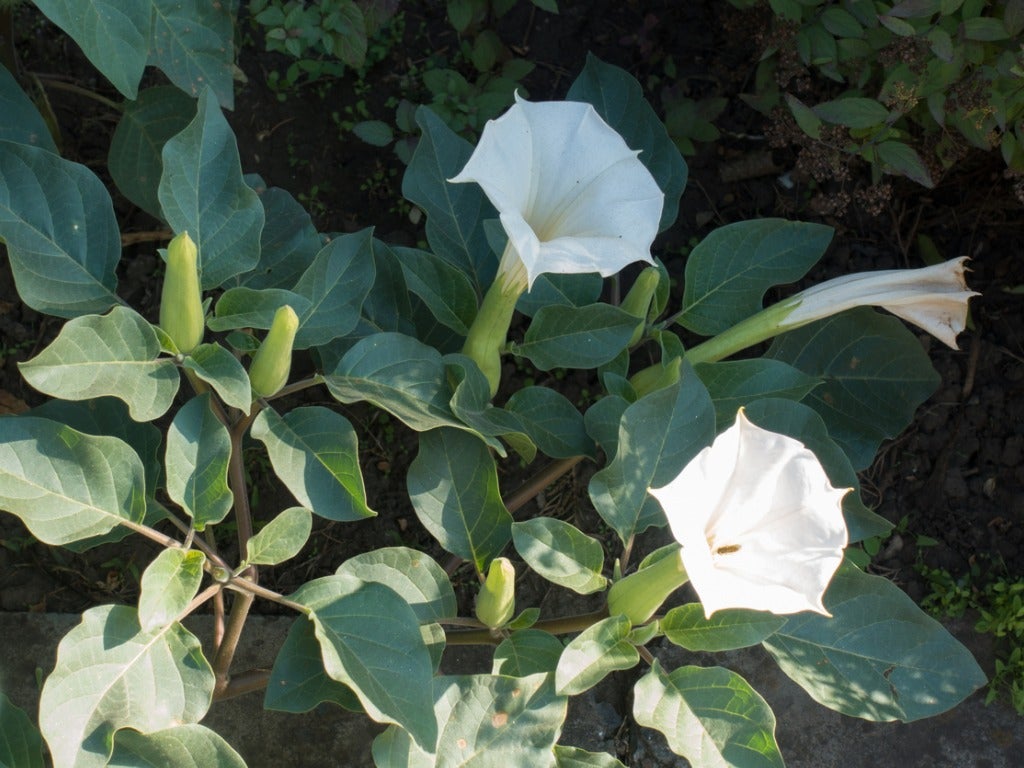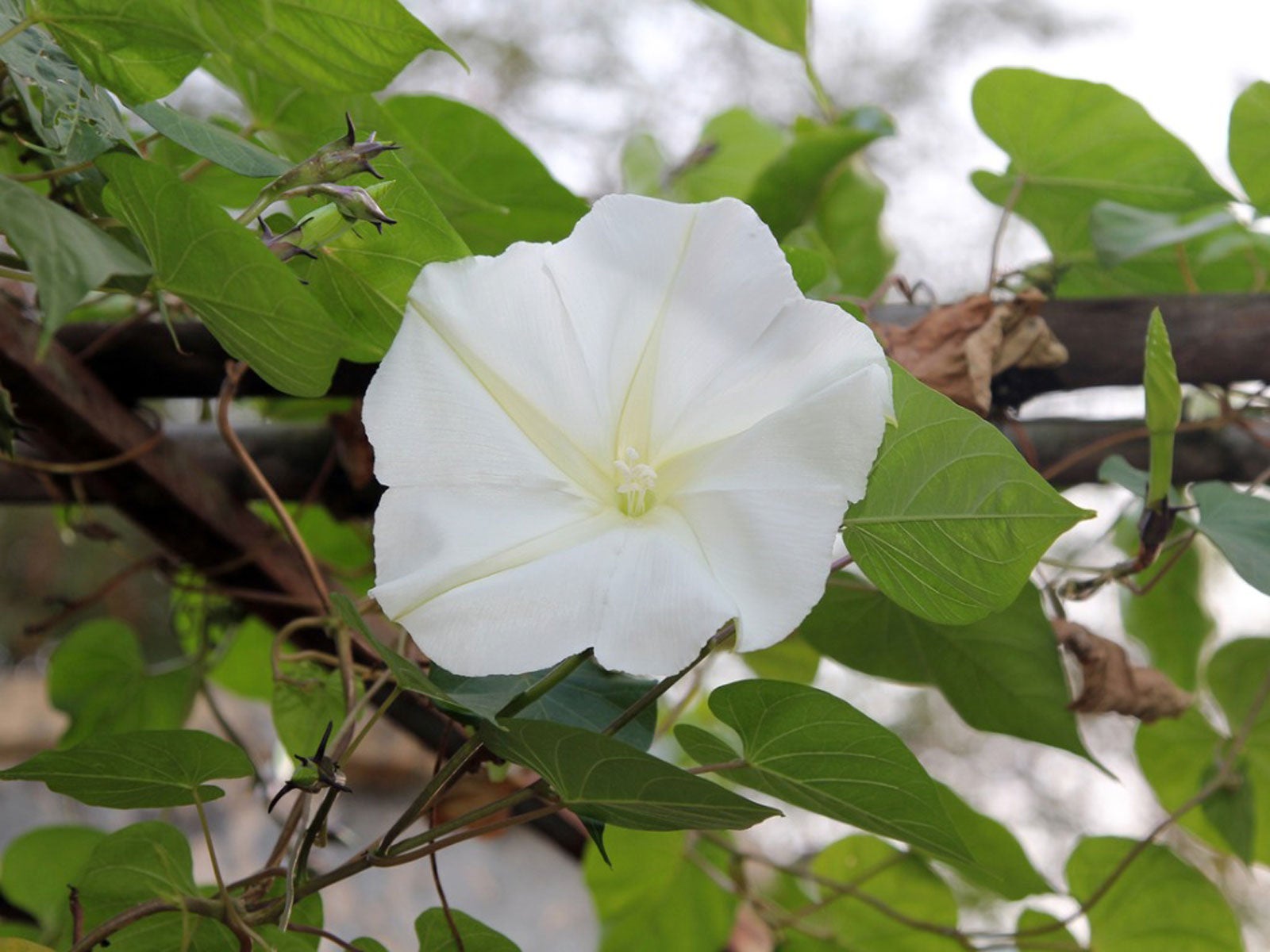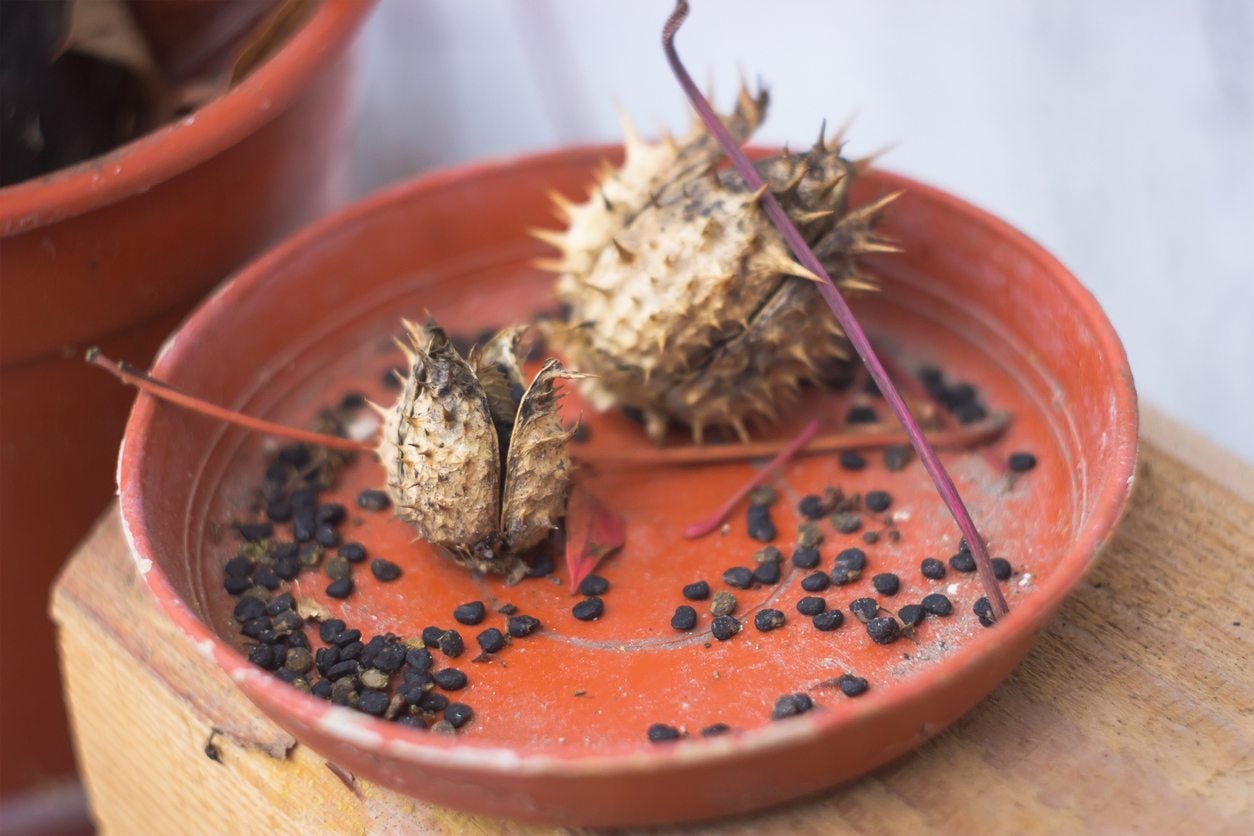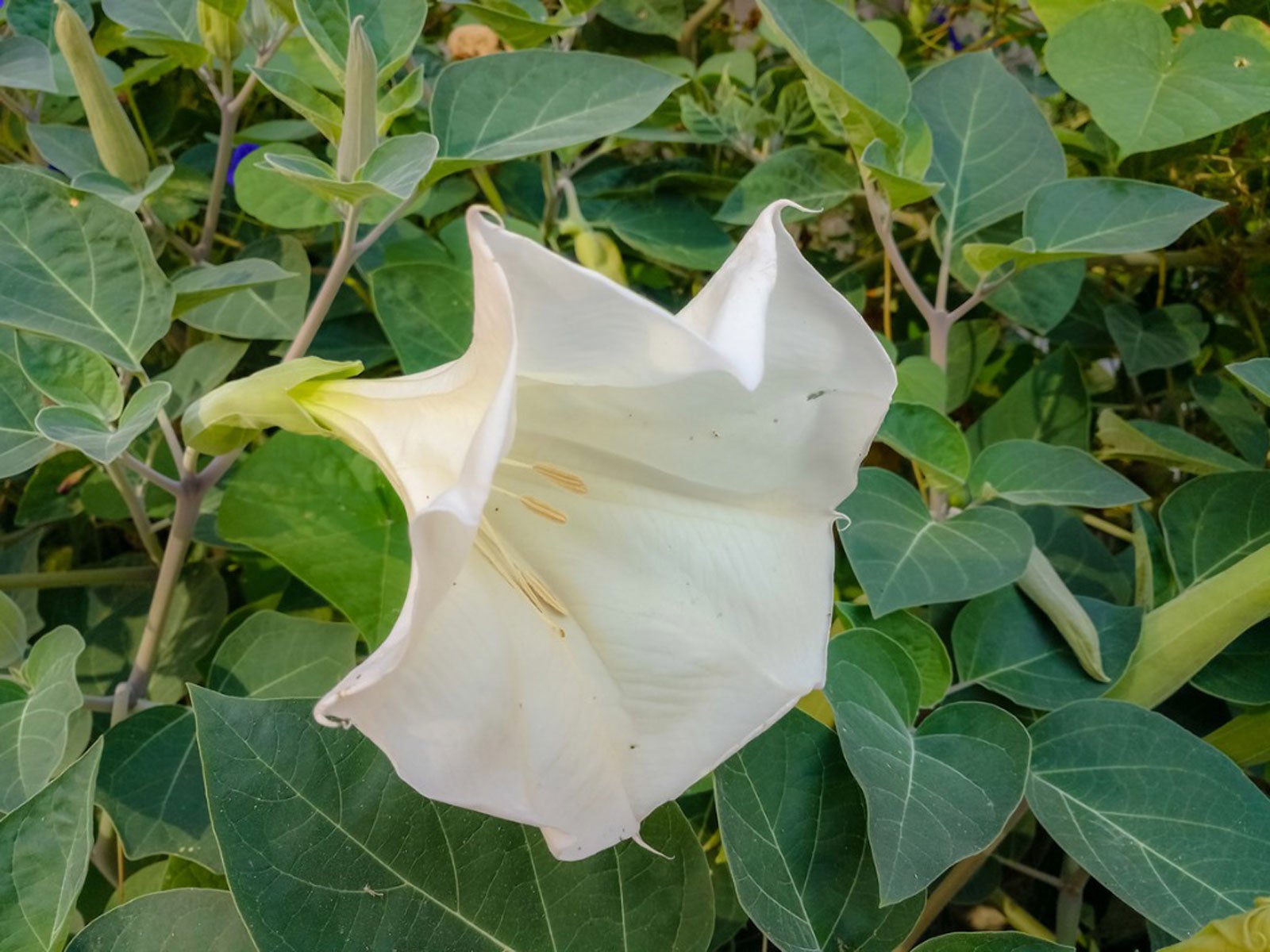Moonflower Vs. Datura: Two Different Plants With Common Name Moonflower


The debate over moonflower vs. Datura can get pretty confusing. Some plants, like Datura, have a number of common names and those names often overlap. Datura is sometimes called moonflower, but there is another type of plant that also goes by the name moonflower. They look similar but one is much more poisonous, so it’s worth it to know the difference.
Is Moonflower a Datura?
Datura (Datura stramonium) is a type of plant that belongs to the Solanaceae family. There are several species of Datura with many common names including moonflower, devil’s trumpet, devil’s weed, loco weed, and jimsonweed.
The common name moonflower also is used for another plant. This one is known as moonflower vine, which helps to distinguish it from Datura. Moonflower vine (Ipomoea alba) is related to morning glory. Ipomoea is toxic and has some hallucinogenic properties, but Datura is much more toxic and can even be deadly.

How to Tell Ipomoea from Datura
Datura and moonflower vine get confused very often because of the common name, and they look very similar to one another. Both produce flowers that are trumpet shaped, but Datura grows lower to the ground while moonflower grows as a climbing vine. Here are some other differences:
- Flowers on either plant can be white to lavender.
- Datura flowers can bloom any time of day, while ipomoea flowers open up at dusk and bloom during the night; one reason they are called moonflowers.
- Datura has an unpleasant smell, while moonflower vine has sweet-scented blooms.
- Datura leaves are arrow-shaped; moonflower leaves are heart-shaped.
- Datura flowers are deeper trumpets than moonflower blooms.
- The seeds of Datura are covered in spiky burrs.
Knowing the differences and how to tell Ipomoea from Datura is important because of their toxicity. Ipomoea produces seeds that have a mild hallucinogenic effect but is otherwise safe. Every part of the Datura plant is toxic and can be deadly to animals and humans if consumed in large amounts.
Gardening tips, videos, info and more delivered right to your inbox!
Sign up for the Gardening Know How newsletter today and receive a free copy of our e-book "How to Grow Delicious Tomatoes".

Mary Ellen Ellis has been gardening for over 20 years. With degrees in Chemistry and Biology, Mary Ellen's specialties are flowers, native plants, and herbs.
-
 Looking For Plants To Give You The Soft And Fuzzies? Try These 5 Fuzzy Leaf Plant Options
Looking For Plants To Give You The Soft And Fuzzies? Try These 5 Fuzzy Leaf Plant OptionsLovers of texture, drama, silver foliage and tactile plants will adore these special sensory garden additions. These fuzzy leaf plant options will leave you all aglow
By Susan Albert
-
 Get Ready For A Summer Of Hummers! Grow These Full Sun Hummingbird Plants and Flowers
Get Ready For A Summer Of Hummers! Grow These Full Sun Hummingbird Plants and FlowersIf you’re lucky enough to enjoy a sunny backyard, make sure you are maxing out on your pollinator opportunities and grow these full sun hummingbird plants and flowers
By Tonya Barnett
-
 How To Propagate Datura: Learn About Datura Plant Propagation
How To Propagate Datura: Learn About Datura Plant PropagationMost gardeners who try growing datura plants quickly realize they can use more in their gardens. In this article, we will discuss how to propagate datura plants. Click here for datura plant propagation tips and techniques.
By Darcy Larum
-
 About Datura Plants - Learn How To Grow Datura Trumpet Flower
About Datura Plants - Learn How To Grow Datura Trumpet FlowerDatura, or trumpet flower, is one of those "ooh and ahh" plants. What is Datura? It is an herbaceous perennial or annual with a deadly reputation as an ingredient in poisons and love potions. Read here to learn more.
By Bonnie L. Grant